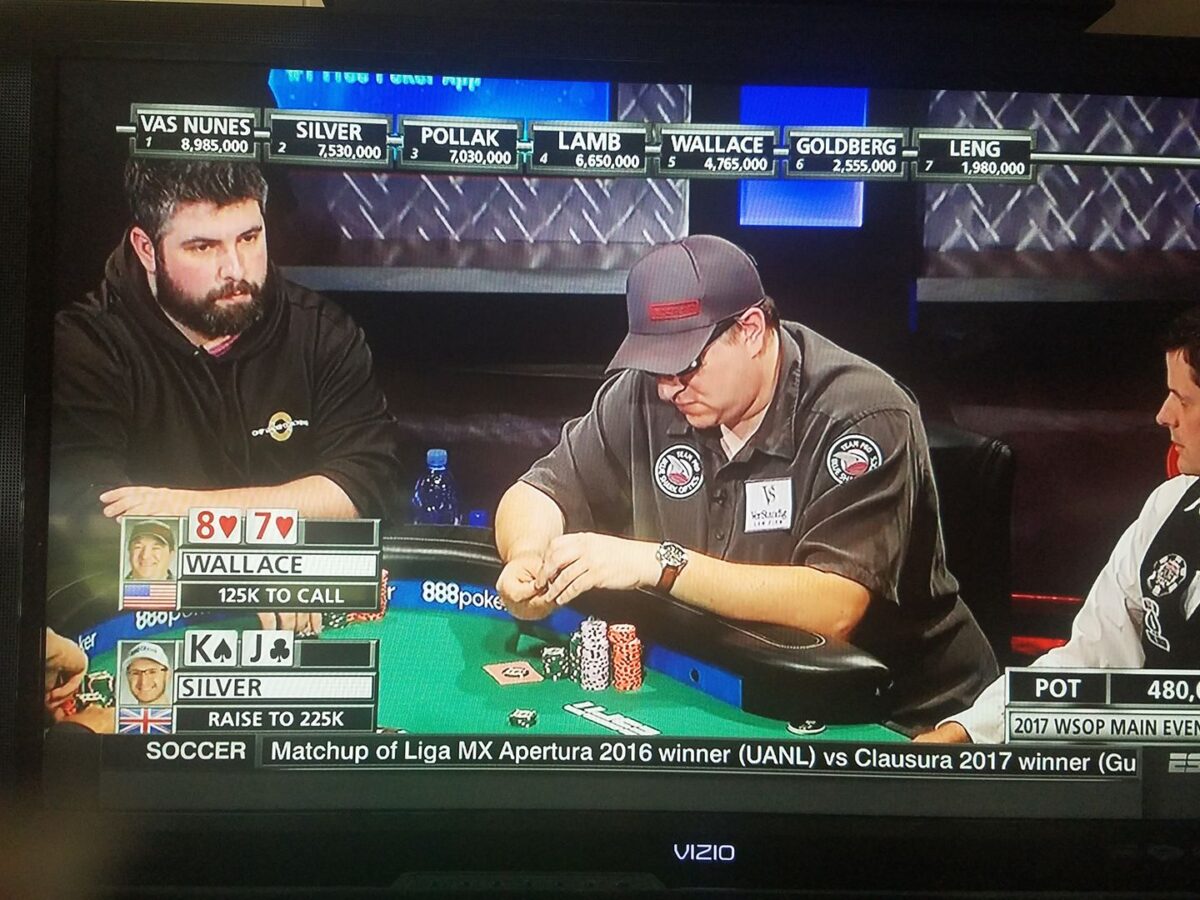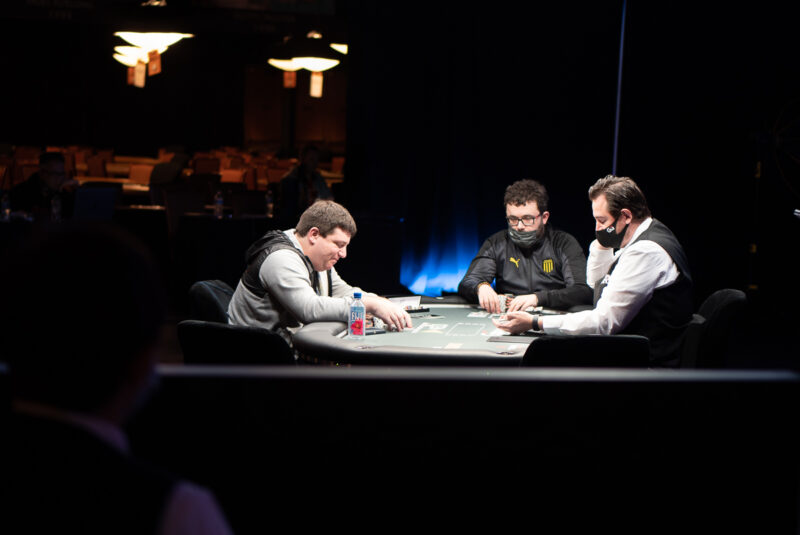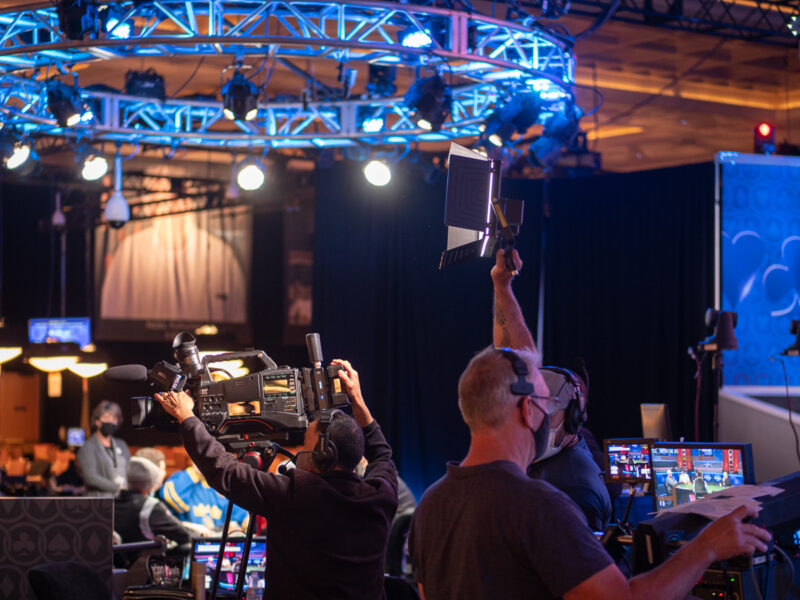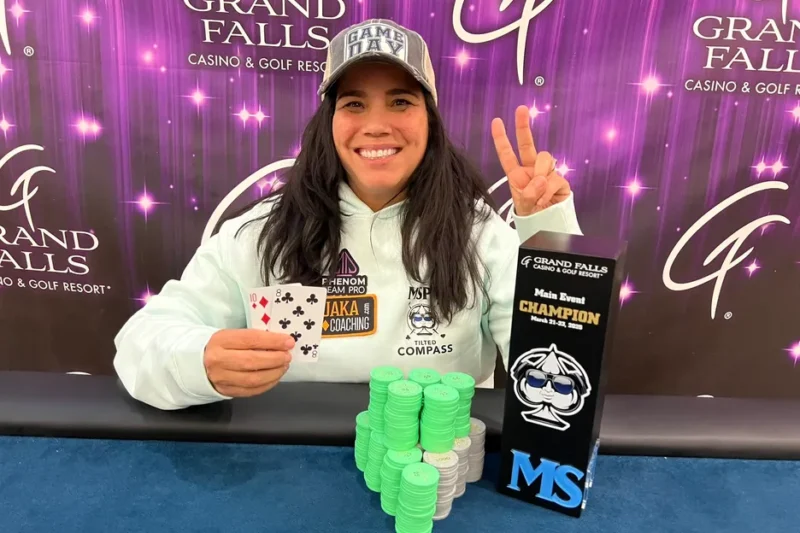It’s fun to watch massive cash games on television. Huge pot after huge pot, so much action, and millions of dollars at stake in a game that only lasts a few hours. But are these games even real? Or are you just witnessing poker’s version of reality TV? When that famous pro tosses in a bluff that could buy most people a house, is he really going to have to dump out a backpack full of cash to rebuy if it fails?

Let’s start by putting you, the reader, in a spot. You decide where you would object to how things are happening.
You play the $1/$2 game at your local casino. You’re not bad, a winner, but not making a good living. It’s tough to make any real money in those games with such a high rake and only seeing around 35 hands an hour. You know most of the players, you all play together most nights, and you share a beer at the bar after a long session and talk about hands with a few of the better players. It’s not just a social interaction — the discussions also help you improve your game.
The casino decides to run a $2/$5 game, something that usually doesn’t happen, for their inaugural livestream. You would like to be part of it, but your bankroll won’t really cover a bad run at $2/$5. Then, after a long session with a player named Josh, he approaches you at the bar and asks if you plan to play on the livestream.
Lights, camera, livestream
You say that you aren’t sure you can handle the swings of $2/$5 quite yet, and he says he’s in the same boat. You know Josh is a good guy, and he plays well, so when he offers to swap 25% with you, it seems like a no-brainer. The swap will cut down your variance without hurting your win rate, and you both get to play on the livestream.
You play, it goes well, and you both agree to play on the broadcast with the same deal the next week. This goes on for a few weeks and Josh tells you that he has also started swapping with Mary, who is a very good player. When the game is bumped up to $5/$10 for a special edition of the broadcast, they invite you to join them and the three of you each swap 25%, meaning that you have half of your own action and 25% of two other players.
Two big fish have decided to play the game. They get wrecked and you, Josh, and Mary all do quite well. Mary invites the big fish to play again next Friday. They agree and, again, you and the others show a profit. You aren’t winning every session, but with the swaps, you’re almost never losing. The money is flowing smoothly from the fish to the sharks and your bankroll is growing nicely.
Serious money and swapping action
The Friday night $5/$10 game becomes a regular thing and, sometimes, at the end of the night, it’s just the three of you who have swapped action and one fish who stubbornly refuses to leave until he’s drunk and/or broke.
Are you still comfortable? Playing three on one against an inebriated player who doesn’t know about the swap? At what point did you get uncomfortable? Are you still playing?
Now let’s kick it up a notch or two.
You’re developing a real reputation, playing on every broadcast and often winning. A friend gets you an invitation to play on a nationally known live broadcast and you’re excited to play, but the game is $10/$25 No-Limit and your bankroll isn’t quite big enough for that. Luckily, Josh and Mary agree to buy 50% of your action.
It goes well and you decide to start playing on the bigger broadcast whenever you can. You find out that a few of the better players are swapping action and you get in on it. Now the money is getting serious.

A big, special edition of the larger broadcast is coming up, but the blinds will be $50/$100 and that’s way too big, even with a lot of swapping. You mention this to one of the well-known players and he tells you that he and four of the other players all swap 20% with each other when the game gets that big, so you would only be playing for 20% of yourself, making the blinds effectively $10/$20 for you.
They all want to play in the biggest game as much as you do. And there are a couple bad players coming who also love to be on a live broadcast. It could be really good money in addition to the fun of being on the big broadcast with thousands of people watching. Would you turn down an offer like this?
What if those players said that they swap all of their action, effectively playing as a syndicate? At what point are you swapping too much? What if you notice that the other players play differently against you and each other when the swap was big? Nothing too obvious, but they aren’t playing the same way you’re used to, and they seem to be really killing the fish?
For a broke poker pro, it can be tough to say no
Now keep the scenario going, except apply it to professional poker players, some of whom are stone broke and desperate to get back in action. People who haven’t had a job in 20 years and who could never support their lifestyle without a significant income from poker. Do you think they turn down this kind of opportunity? All of them?
And, if you know that half the table has swapped action and are soft-playing each other, would you want to play the game on your own dime and try to beat a bunch of other pros in that scenario? I don’t think I would. And that serves as a filter to keep some people out who would play only with their own cash, and leaves more seats open for those who want to swap action and chop up the fish.
I think you can see how this problem develops …
Poker pros are crafty people. If the broadcast team would be unhappy about a swap, then it’s easy to keep it quiet. A lot of high stakes poker debts are settled with cryptocurrency in an instant these days so there’s not even any money changing hands backstage.
Tough spot for producers, too
What if you were the producer of a show like this? How hard would you look for information that would call the integrity of your broadcast into question or chase away “celebrity” players who bring in a lot of viewers?

This puts another filter in place. Now any producer who would only broadcast a completely straight game is at a disadvantage and less likely to succeed than his competition who will broadcast anything that viewers like and maybe even facilitate this kind of behavior?
Augmented reality
We all know that television and online broadcasts aren’t always real. Even reality TV is a contrived thing in most cases. The winner of Survivor gets a million dollars, but they don’t tell you that the other contestants receive hefty payouts as well. If they did that, the stakes wouldn’t seem so high.
From reality dating shows to game shows, we’ve seen instances of contrived, forced, or even completely fake drama for years. Why would — or should — we think poker is any different?
Now, I’m not telling you that the money is never real. In fact, it often is. And I’m not calling the integrity of anyone specific into question. In fact, I know some people at PokerGO, by far the largest broadcaster of big cash games these days, and they are people of high integrity. But let’s not kid ourselves about how these things happen. Sometimes, maybe a lot of the time, the stakes aren’t what they appear to be, even if the producer is doing their best to ensure a straight game.
I’ve also seen this in the tournament world. Small swaps are common. Backing deals are even more common. I’ve sold action myself a number of times. And many famous poker pros are broke. Whichever pro is running good at the time backs a few of the others and the effect is a pool of money that a good percentage of them draw from, and contribute to, depending on how well they’re doing.
There’s nothing that can be done to stop players from swapping, selling action, or playing differently against their friends. I just want you to be aware of it. Be careful of who you’re playing with, especially when the stakes are high. And remember that, sometimes, the money you’re watching change hands in a huge game might not be real.


